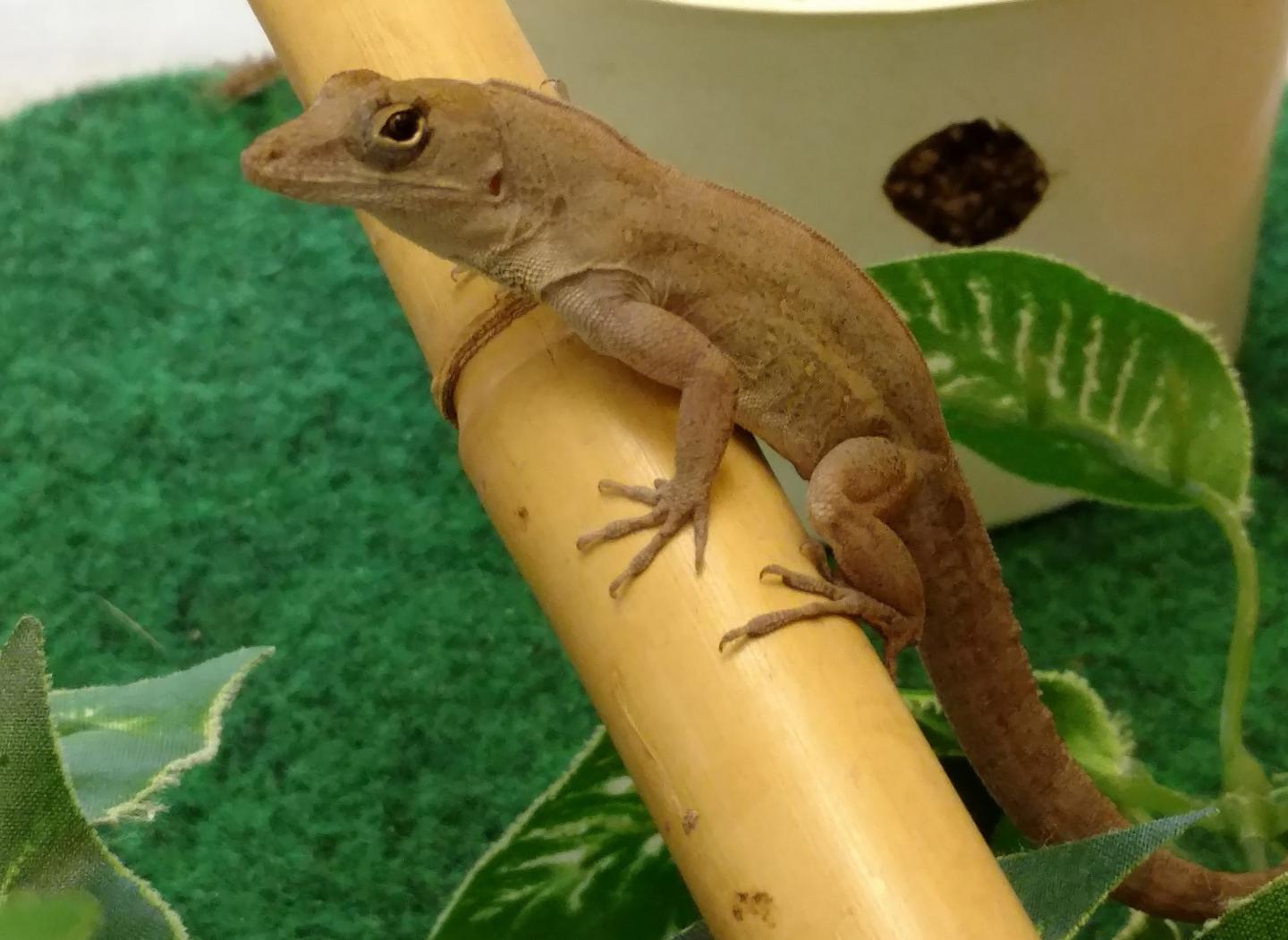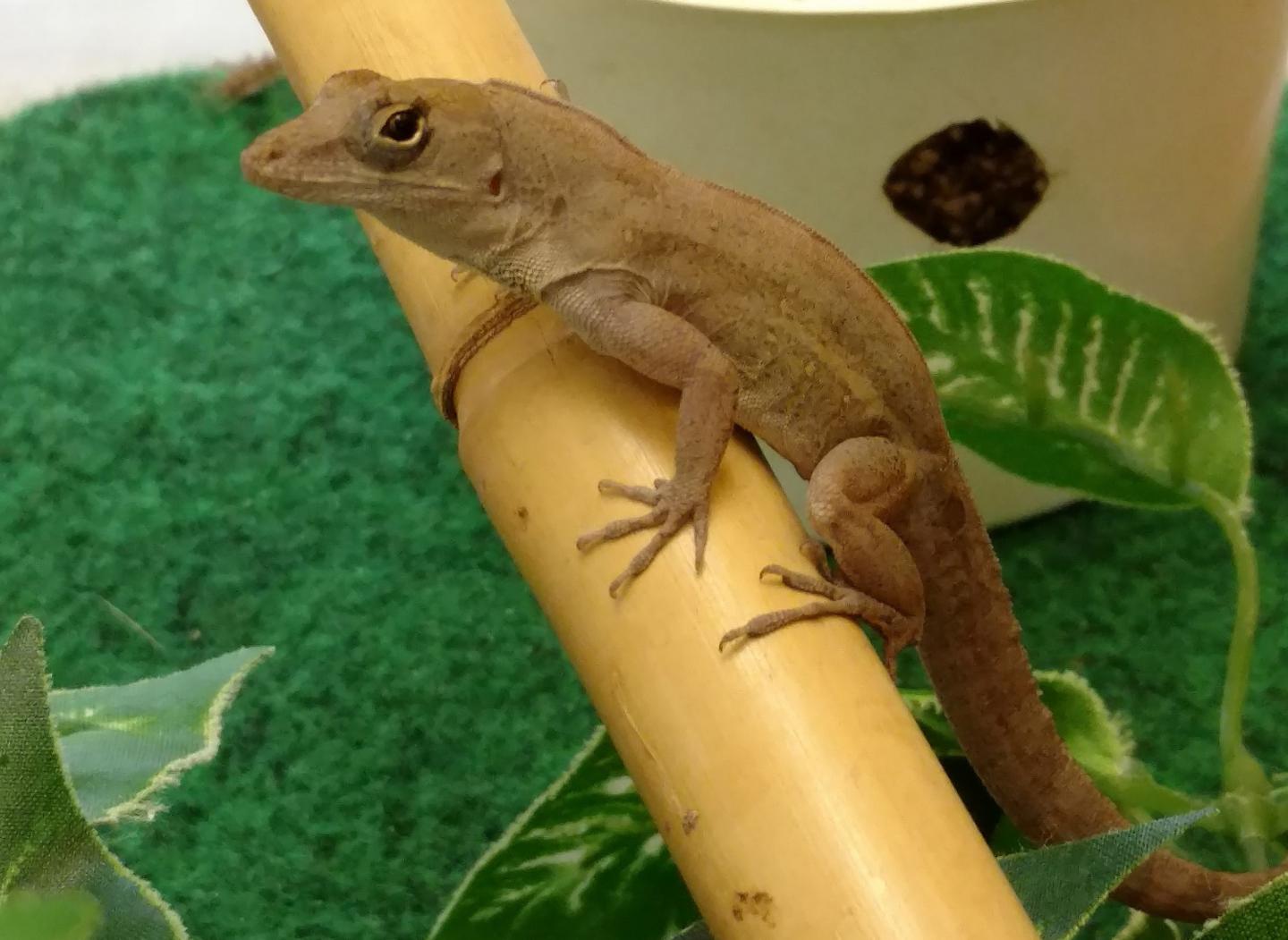
Credit: Shana Pau, University of Georgia Genetics Department (Image is from the Anolis research colony at the University of Georgia)
The National Science Foundation's (NSF) Enabling Discovery through Genomic Tools (EDGE) program has made 11 new awards, totaling approximately $10 million, to develop genomic tools that will allow biologists to identify mechanisms that determine how genes affect an organism's physical and functional characteristics.
The EDGE program helps the research community overcome the impediments that restrict progress in the biology of organisms, including their structure, function and other traits. Specifically, EDGE supports the development and dissemination of new functional genomic tools, approaches and associated infrastructure to directly test gene function in organisms.
"The EDGE awards are very exciting because they are transformative," said Joanne Tornow, NSF's acting assistant director for the Directorate of Biological Sciences. "These researchers are creating innovative tools that will advance efforts to identify links between genes and complex organismal-level characteristics in a wide range of species."
EDGE awards cover a diverse range of organisms, from fungi to plants and animals. Each new project will move the scientific community closer to being able to predict phenotype by developing enhanced genomic tools and infrastructure. This research will contribute to elucidating the sets of rules that predict an organism's observable characteristics or phenotypes, helping to address one of NSF's 10 Big Ideas, "Understanding the Rules of Life."
"This research represents a grand challenge in biology and is part of a bigger effort within our field to better predict how organismal traits arise from genetic variation in natural environments," said Ted Morgan, NSF EDGE program director. "Building this fundamental understanding of how genetic changes are connected with organismal traits has a range of significant societal benefits that include predicting organismal responses to changing environments, the development of more effective conservation efforts, the development of new medical approaches, new therapeutics and better crop yields."
This year's awardees include:
Tools for studying gene function in voles
Zoe Donaldson, University of Colorado-Boulder
Genetic transformation of chytrid fungi
Lillian Fritz-Laylin, University of Massachusetts-Amherst
Generating tools to study Spiralian development
Jonathan Henry, University of Illinois at Urbana-Champaign
Establishing functional genomics in Hydra to study stem cells and regeneration
Celina Juliano, University of California-Davis
Expanding the functional genetics toolkit to link genes to phenotypes in cichlid fish
Scott Juntti, University of Maryland-College Park
Establishment of genome editing and transgenic tools in Anolis lizards
Douglas Menke, University of Georgia
High-efficiency identification of products of homologous recombination in plants as a tool to test gene function
Blake Meyers, Donald Danforth Plant Science Center
Developing techniques for linking genotype to phenotype in amphibians
Lauren O'Connell, Stanford University
Creation of genetically tractable cephalopod model using the Hawaiian bobtail squid
Joshua Rosenthal, Marine Biological Laboratory, Woods Hole
Enabling functional genomics in monkey flowers (Mimulus)
Andrea Sweigart, University of Georgia
Functional genomics in Polistes wasps, a model system in integrative organismal biology
Amy Toth, Iowa State University
###
Media Contact
Ivy Kupec
[email protected]
703-292-8796
@NSF
http://www.nsf.gov
Original Source
http://bit.ly/2N5dP0L





